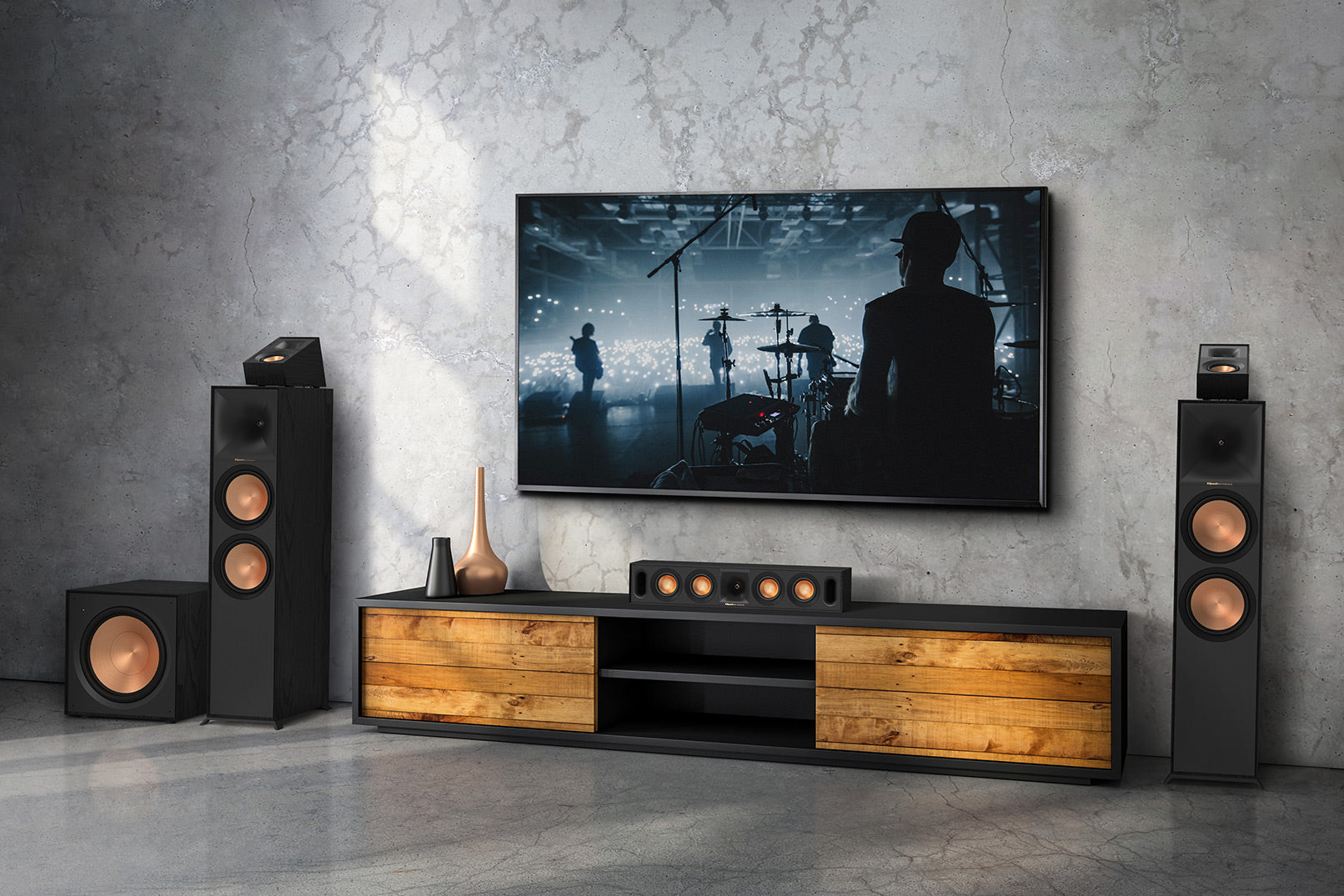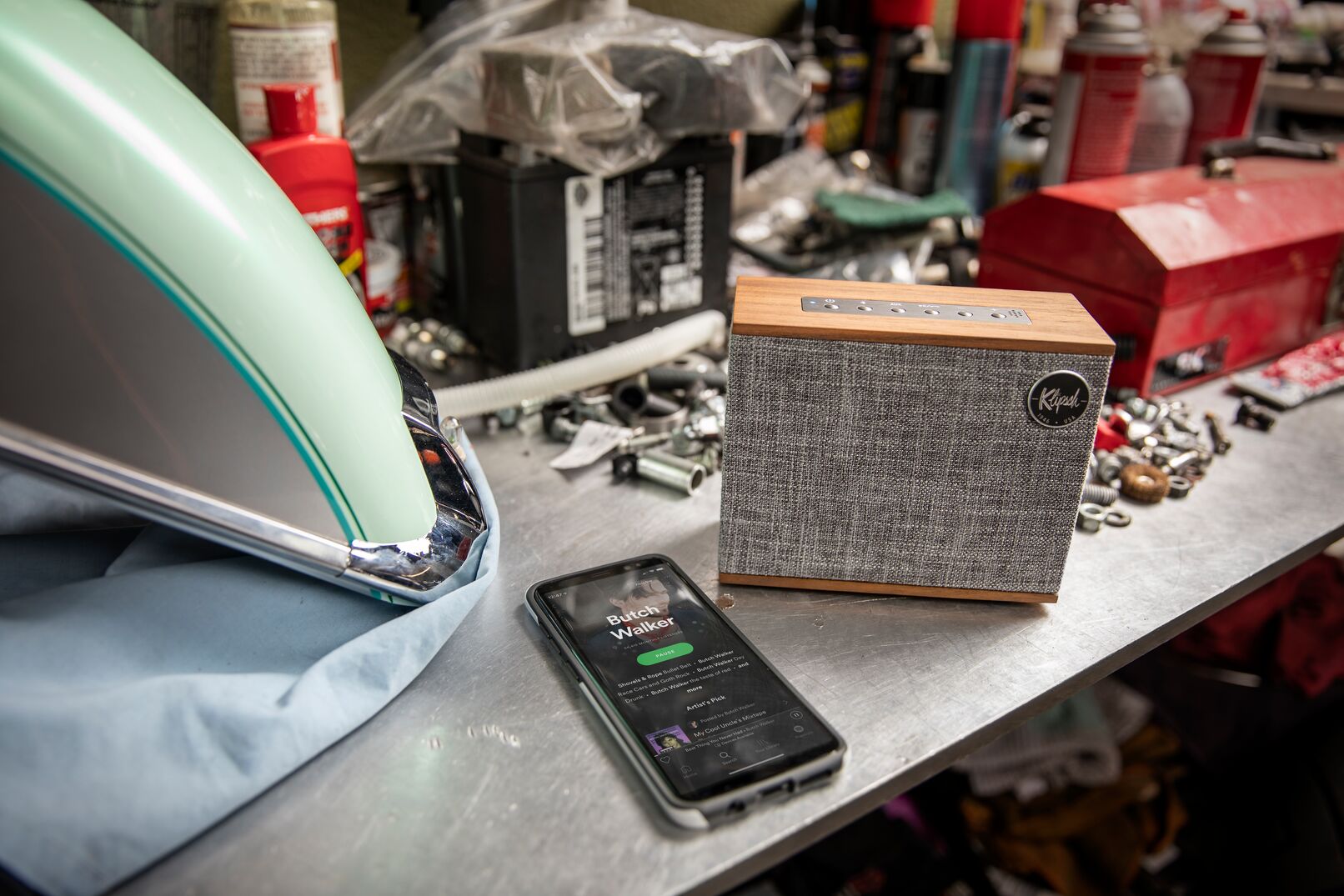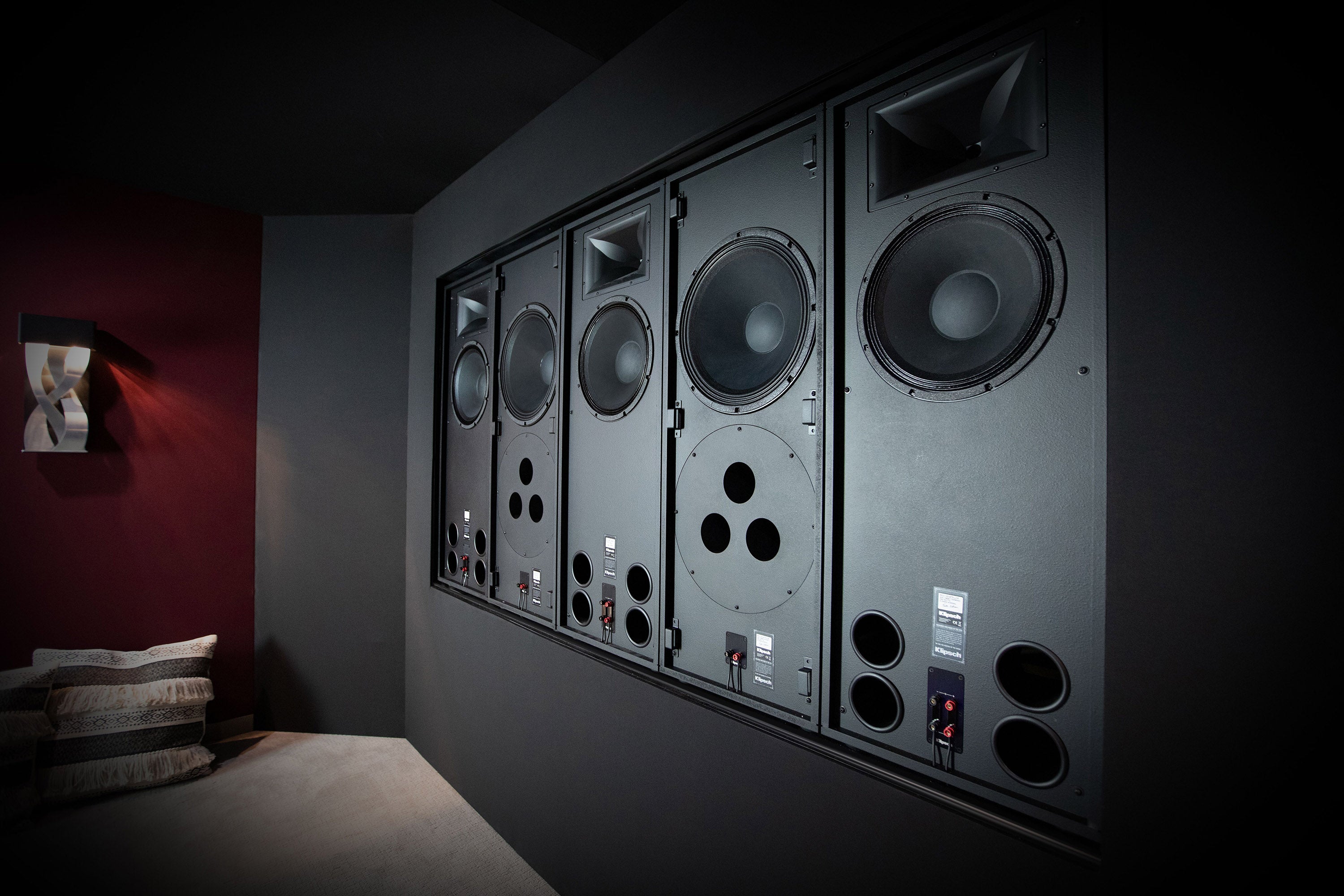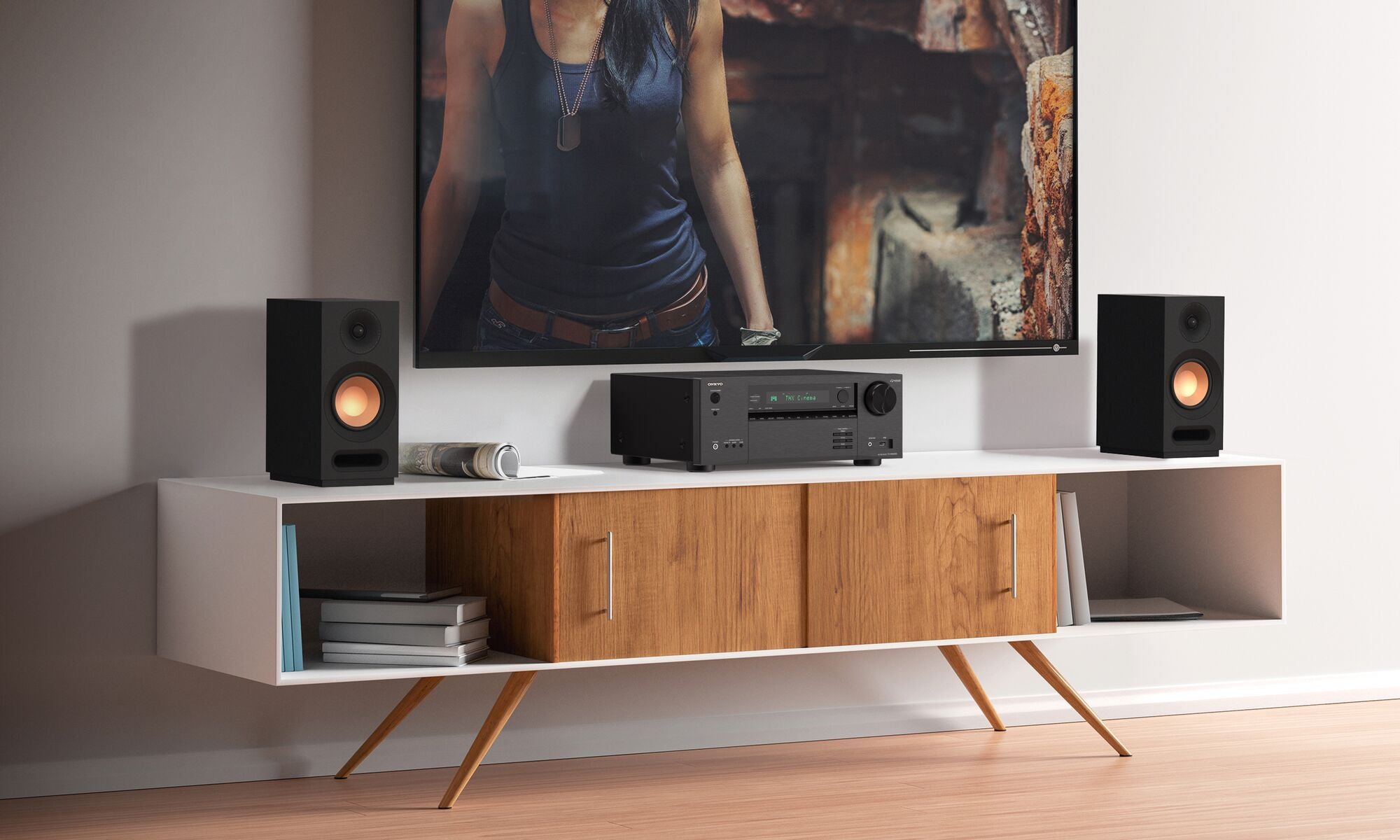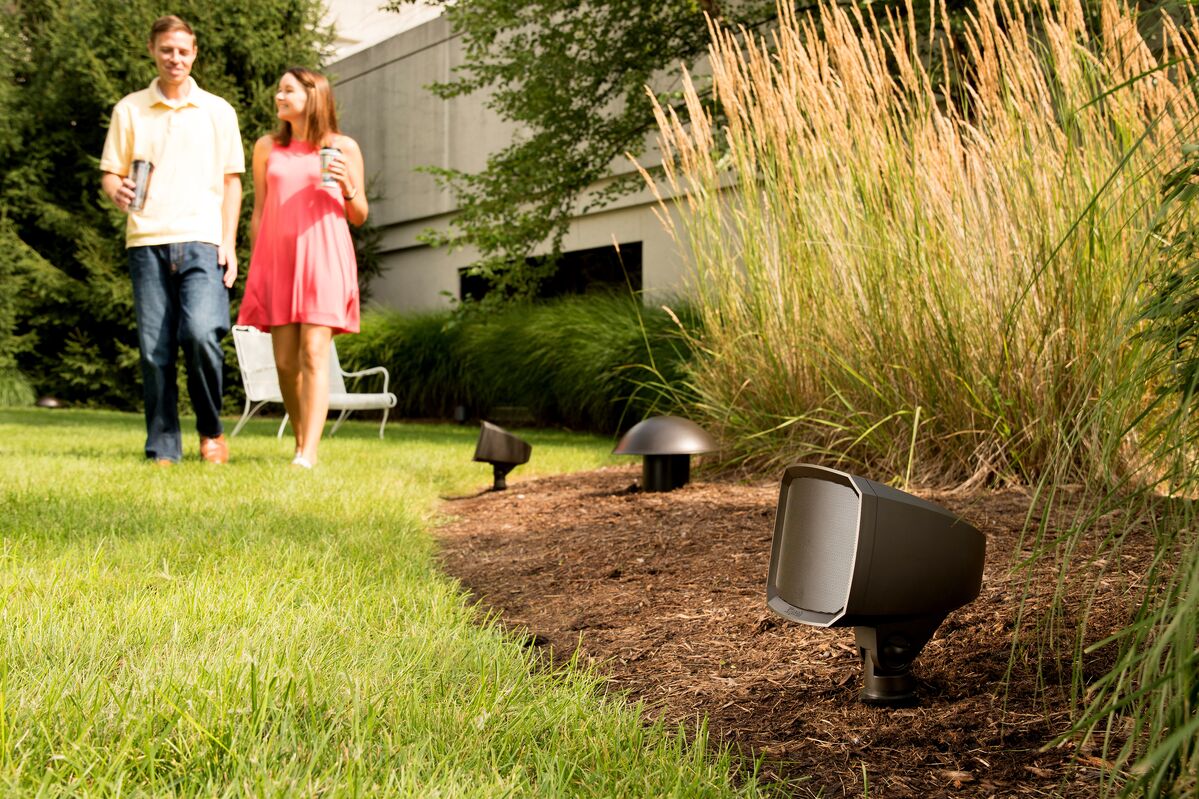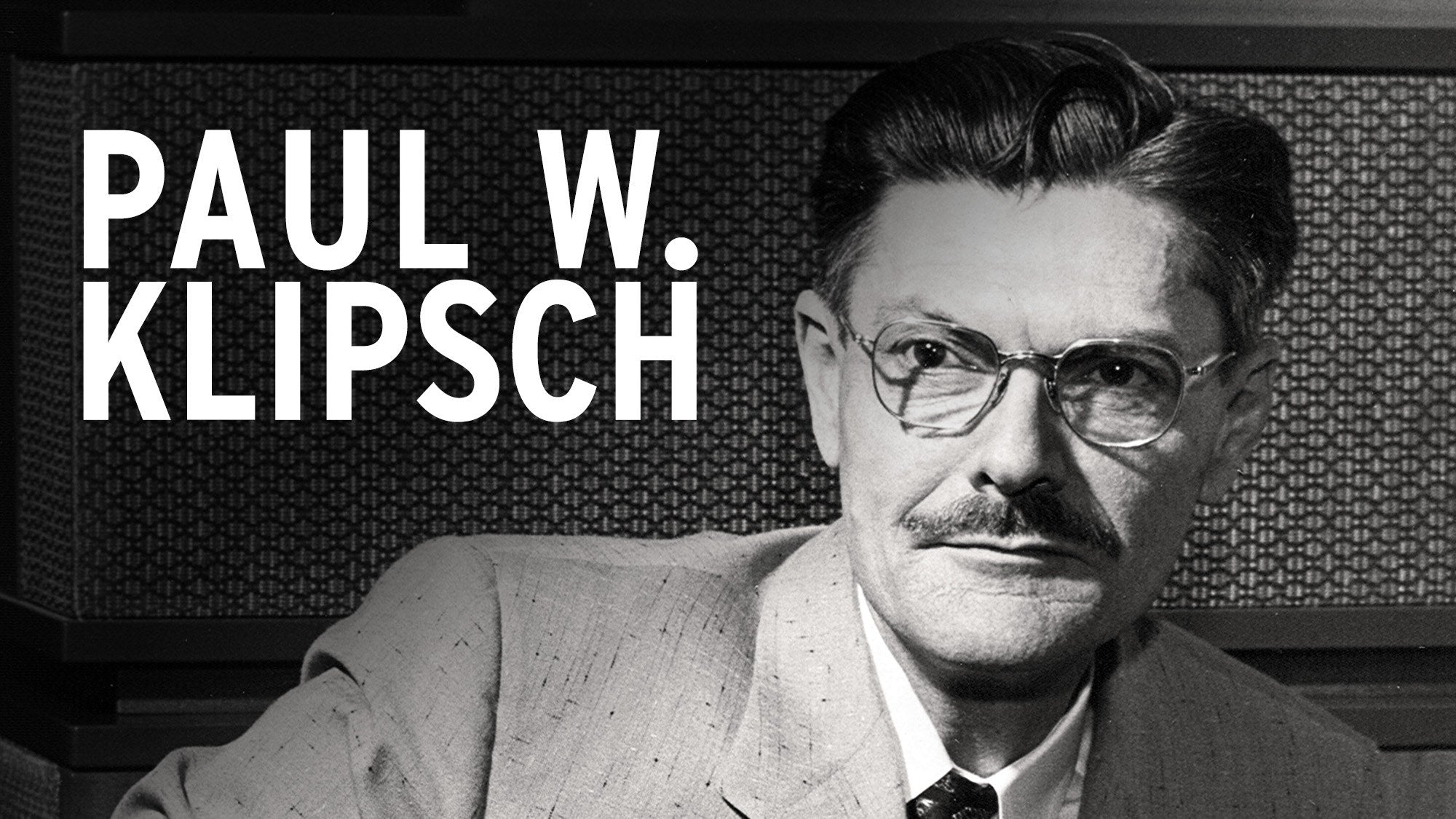
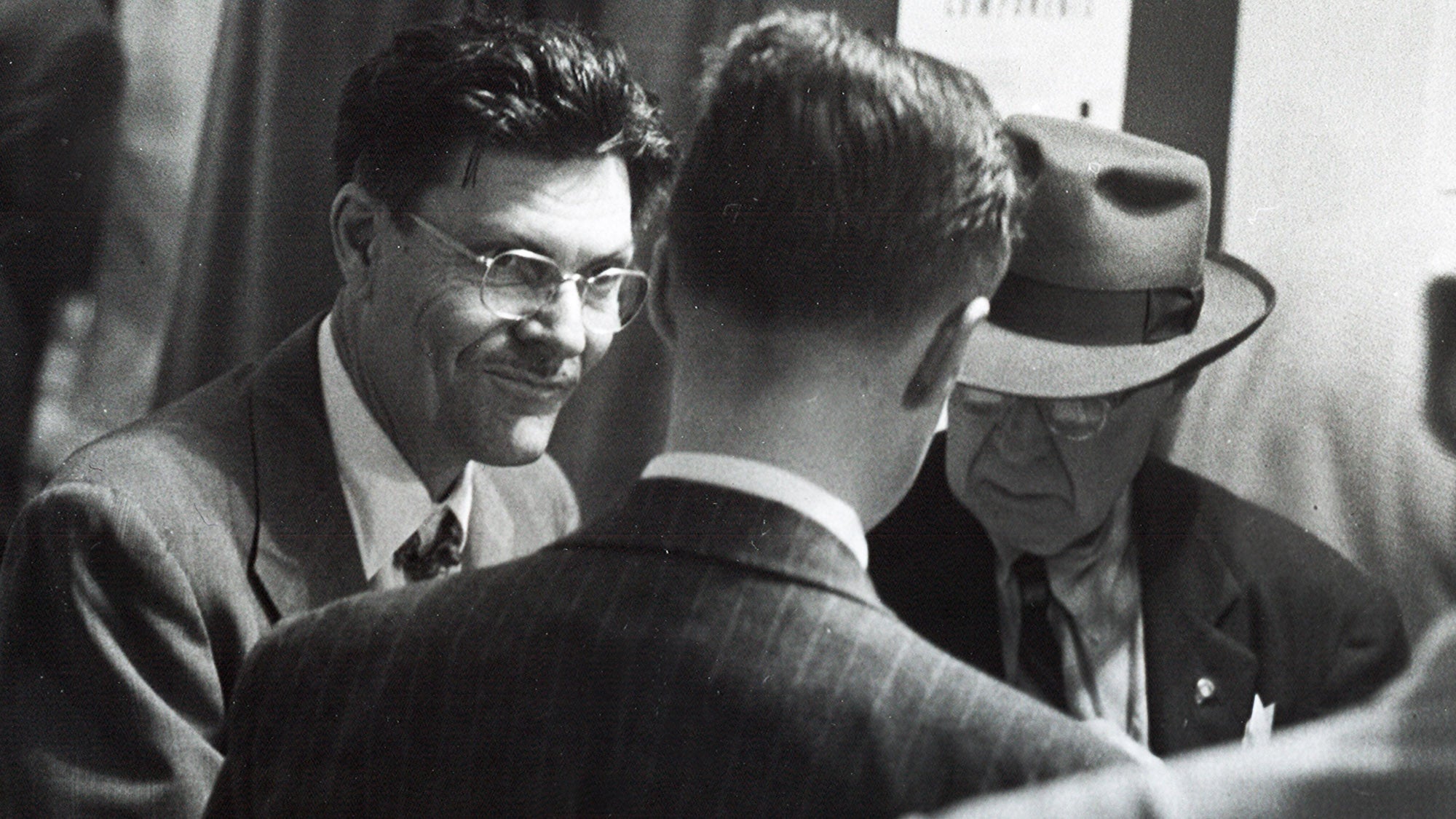
Legend
Paul Wilbur Klipsch (PWK) was an American audio pioneer, a true eccentric and a proud member of the engineering and science hall of fame. He gave rise to speaker technologies that would forever impact generations of music lovers. His passion enabled theirs.
The genesis of something, very, very special occurred in a tiny tin shed in Hope, Arkansas in 1946 when Paul W. Klipsch, genius, madman and maverick, designed and hand-built the legendary Klipschorn® speaker with the goal of bringing live music into his living room.
In the understatement of the century, we'd say he succeeded.
The tin shed is now a full-fledged factory with its own cabinet production line and the company’s headquarters have moved to Indianapolis, Indiana; however, the mission remains to create the world's best speakers.
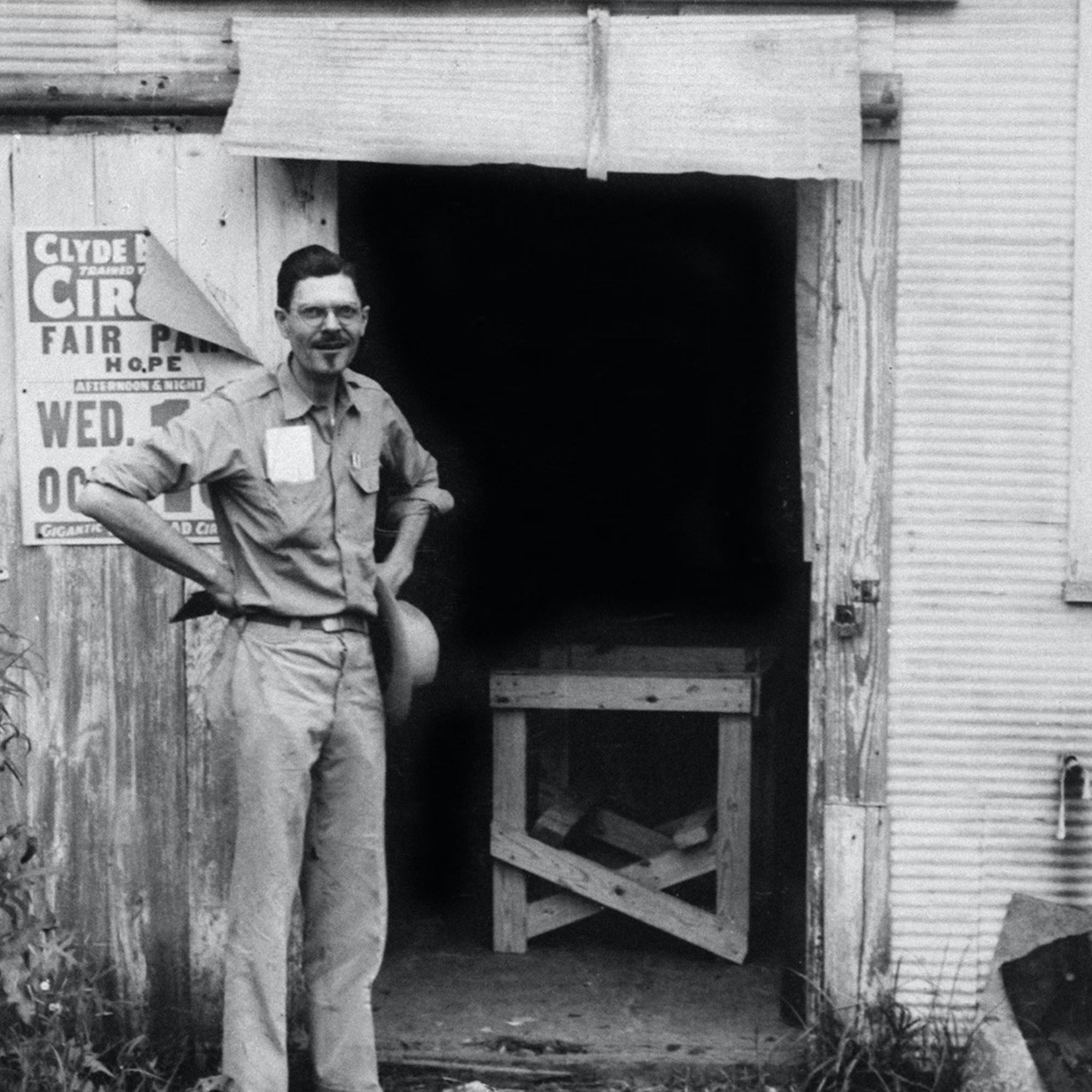
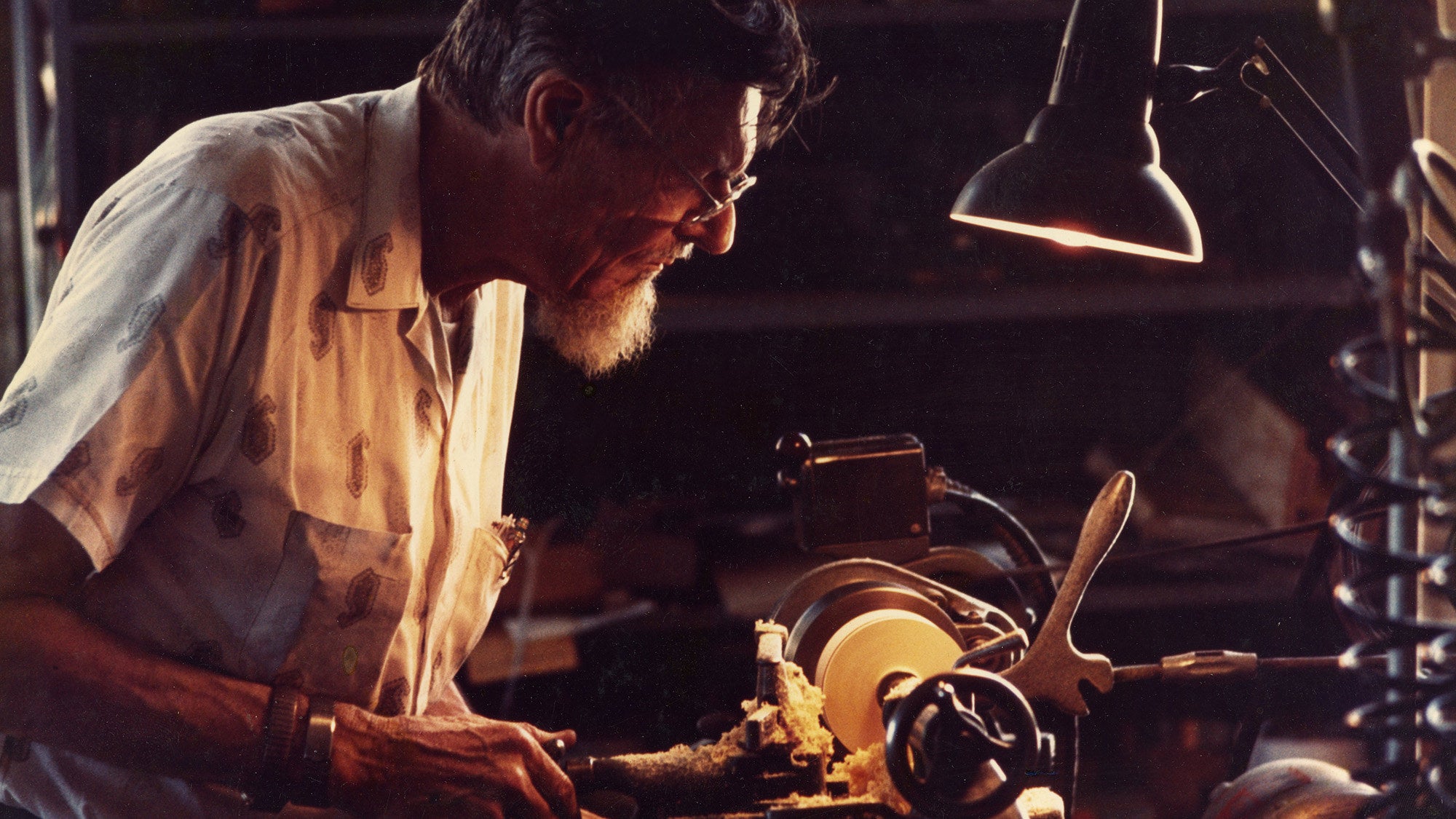
HANDS ON
It was during his service at the Southwest Proving Grounds located in Hope, Ark. that Paul W. Klipsch refined his corner horn speaker design. Visitors to his officer's quarters were amazed by the lifelike reproduction and encouraged PWK to start his own manufacturing business.
He received a patent on his loudspeaker design in 1945, registered the name Klipsch & Associates in 1946, and began making each loudspeaker with his own two hands until he hired his first employee in 1948.
""Paul was a verifiable genius who could have chosen any number of vocations, but the world sounds a lot better because he chose audio."
- Fred Klipsch
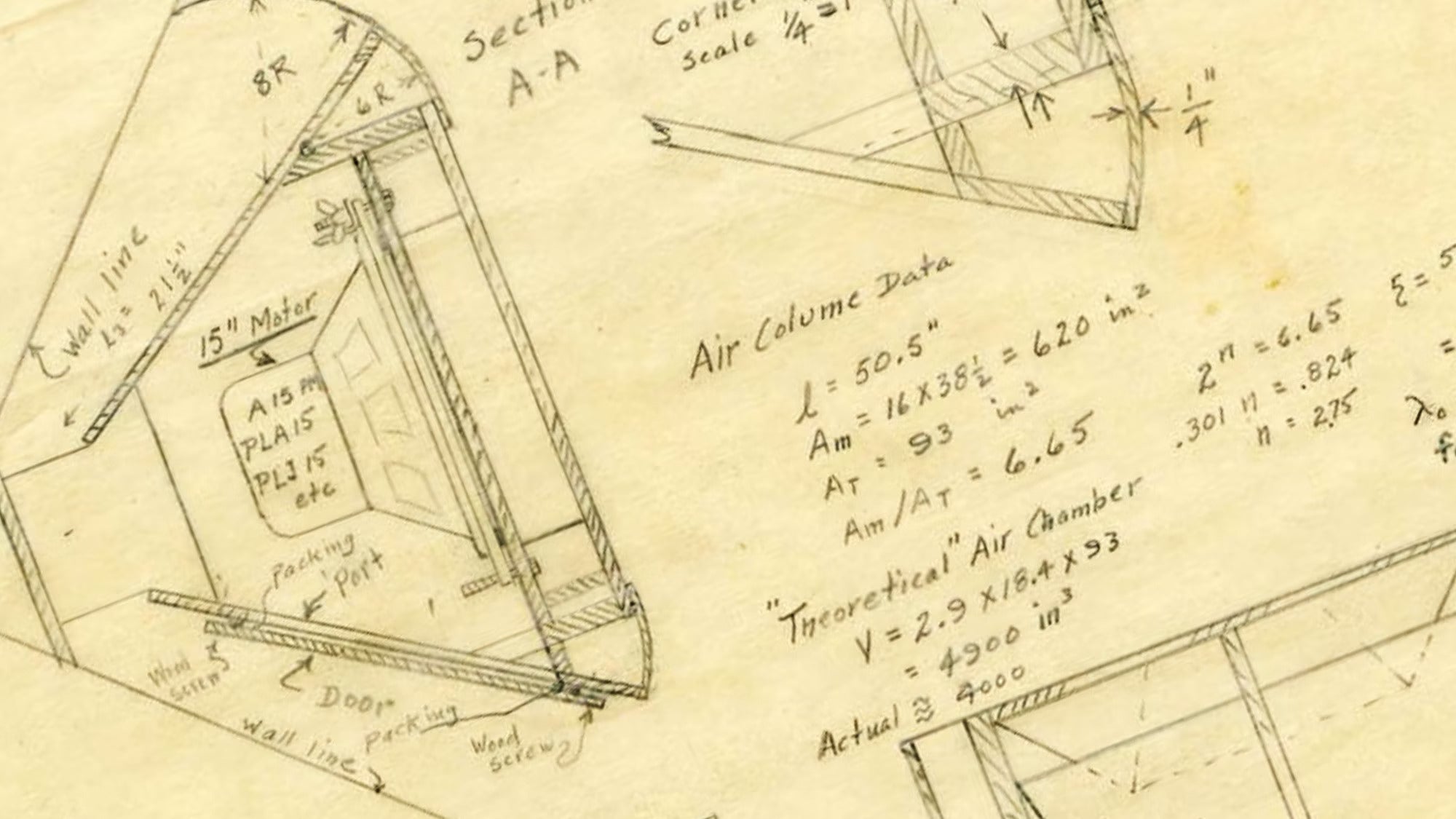
The Klipschorn
During a 1999-videotaped interview, Paul W. Klipsch claimed that he did not, in fact, name the Klipschorn himself. He said that he made a sales call to a man in New York City during the first years of operating Klipsch & Associates and, surprisingly, the business prospect already knew about the revolutionary new loudspeaker. "We've heard all about your corner horn," the man said.
"WE CALL IT THE KLIPSCHORN."
The acoustic principles of Klipsch sound, as stated by Paul W. Klipsch:
High Efficiency/Low Distortion: Klipsch horn technology is highly efficient, providing a more accurate sound with less power and less distortion — resulting in louder, cleaner audio. Klipsch’s Law: Efficiency is inversely proportional to distortion.
Controlled Directivity: Klipsch horn technology accurately directs sound to the proper locations, which, in turn, creates a more lifelike soundstage without wasting acoustic energy where sound is not needed or desired.
Wide Dynamic Range: The softest sounds are reproduced with remarkable clarity and the loudest sounds are delivered without harshness or distortion — with the greatest possible range between the softest and loudest sounds.
Controlled Frequency Response: Audio is delivered without frequency bias — no unnatural highs, mids, or lows — reproducing recorded sound as accurately as possible without colorization.
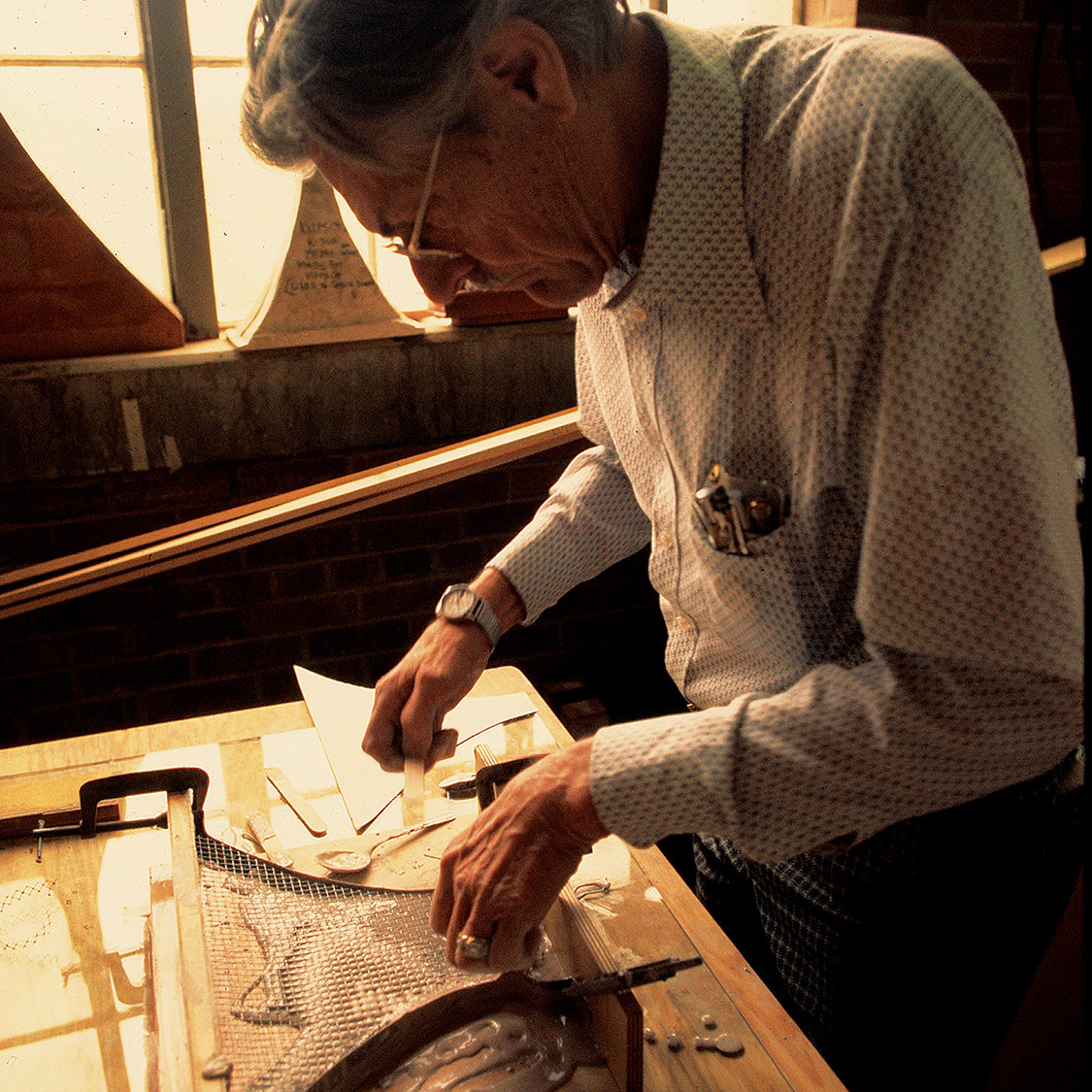
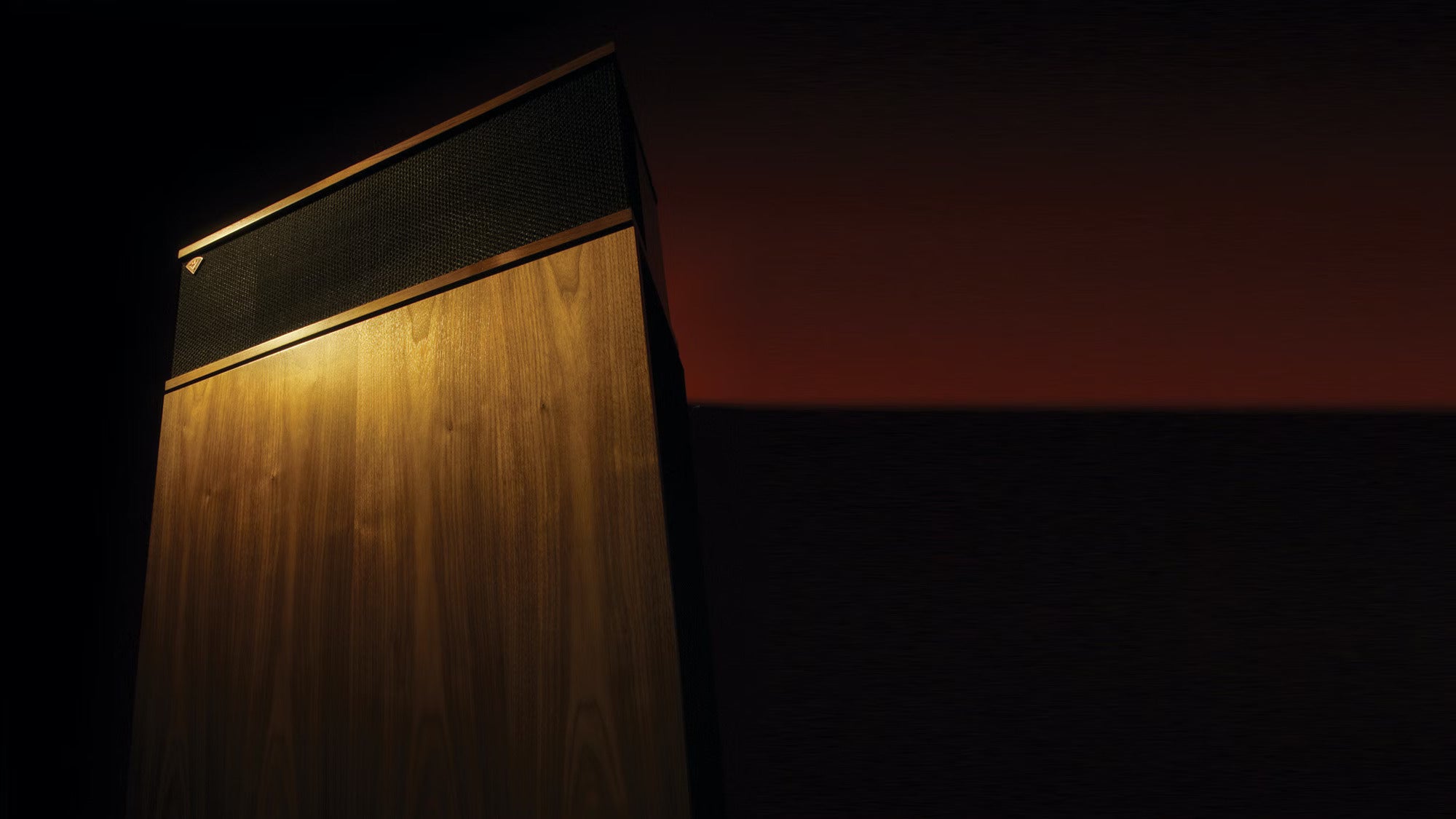
A Testament to his Greatness
The Klipschorn proved that it was possible to reproduce the sound of a live orchestra inside a home. It is the only speaker in the world that has been in continuous production for over 70 years, standing the test of time against all competition.Today, we still make them by hand in Hope, Arkansas, just the way Paul W. Klipsch would have wanted it.
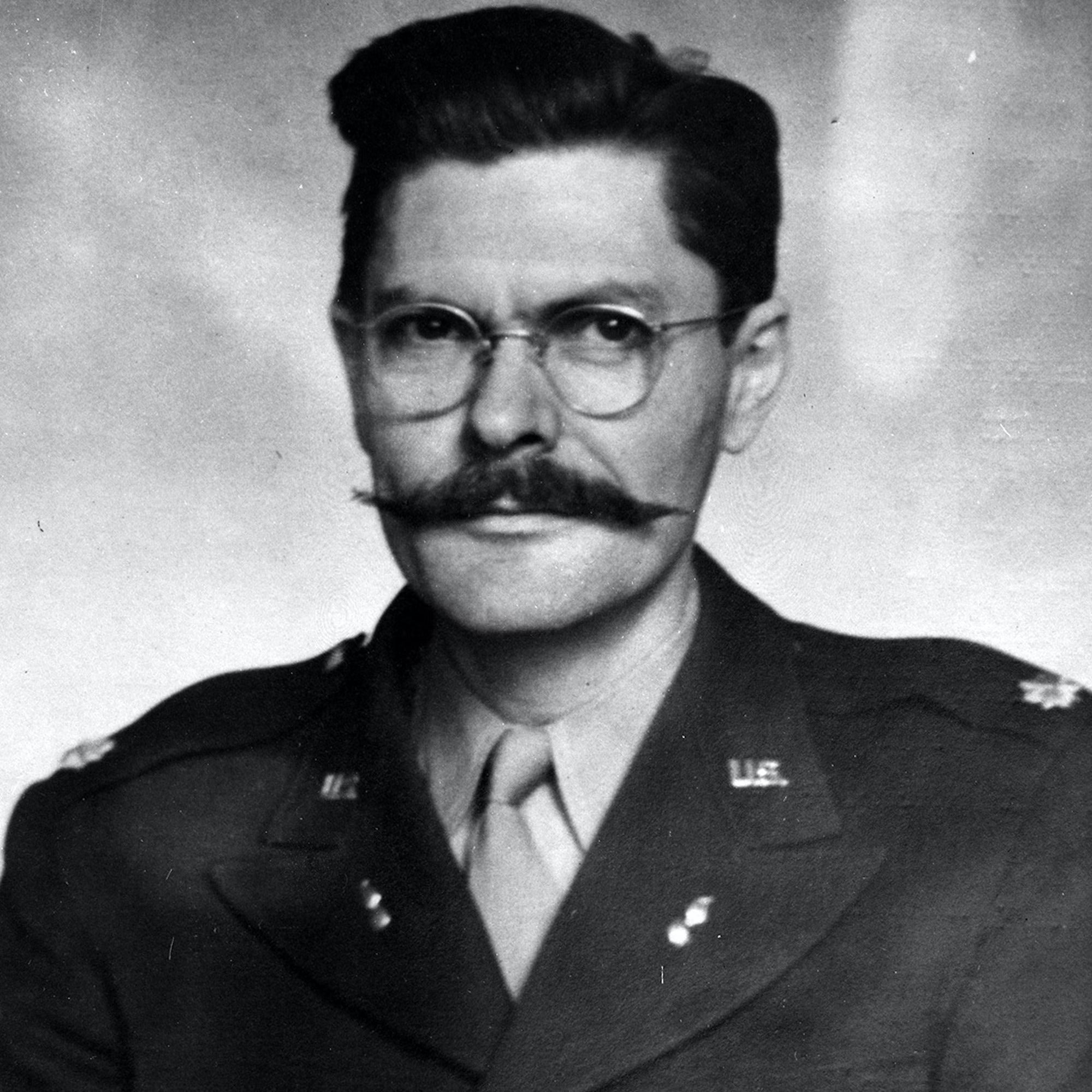
Paul W. Klipsch served in the U.S. Army during World War II, earning the rank of Lt. Colonel.
It was during his service at the Southwest Proving Grounds located in Hope, Ark. that Mr. Klipsch refined his corner horn speaker design. Visitors to his officer's quarters were amazed by the lifelike reproduction and encouraged Mr. Klipsch to start his own manufacturing business.
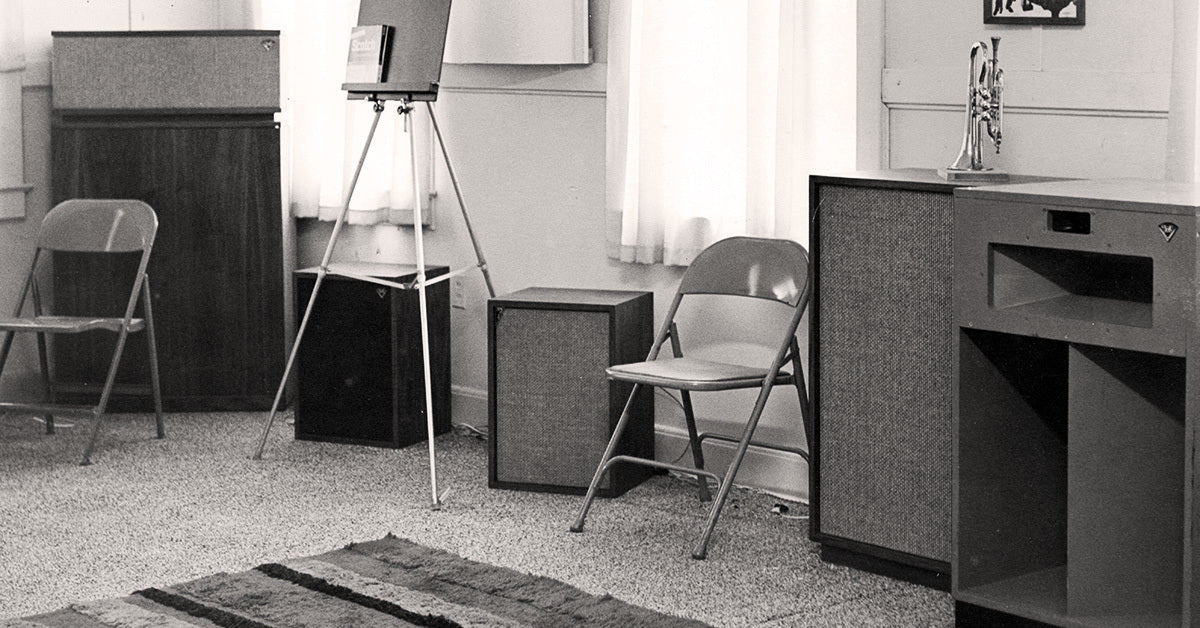
Heritage Speakers
In addition to the Klipschorn, the Heresy, Rebel, Shorthorn, Cornwall, La Scala and Belle Klipsch are among the most well-known loudspeakers developed by Paul W. Klipsch. The principles behind these speakers are the basis for all of our speakers today.
The Klipsch Heritage Series, which consists of the Klipschorn, La Scala II, Cornwall III and Heresy III, are still manufactured and sold around the world today.
They are still considered among the world's finest loudspeakers.
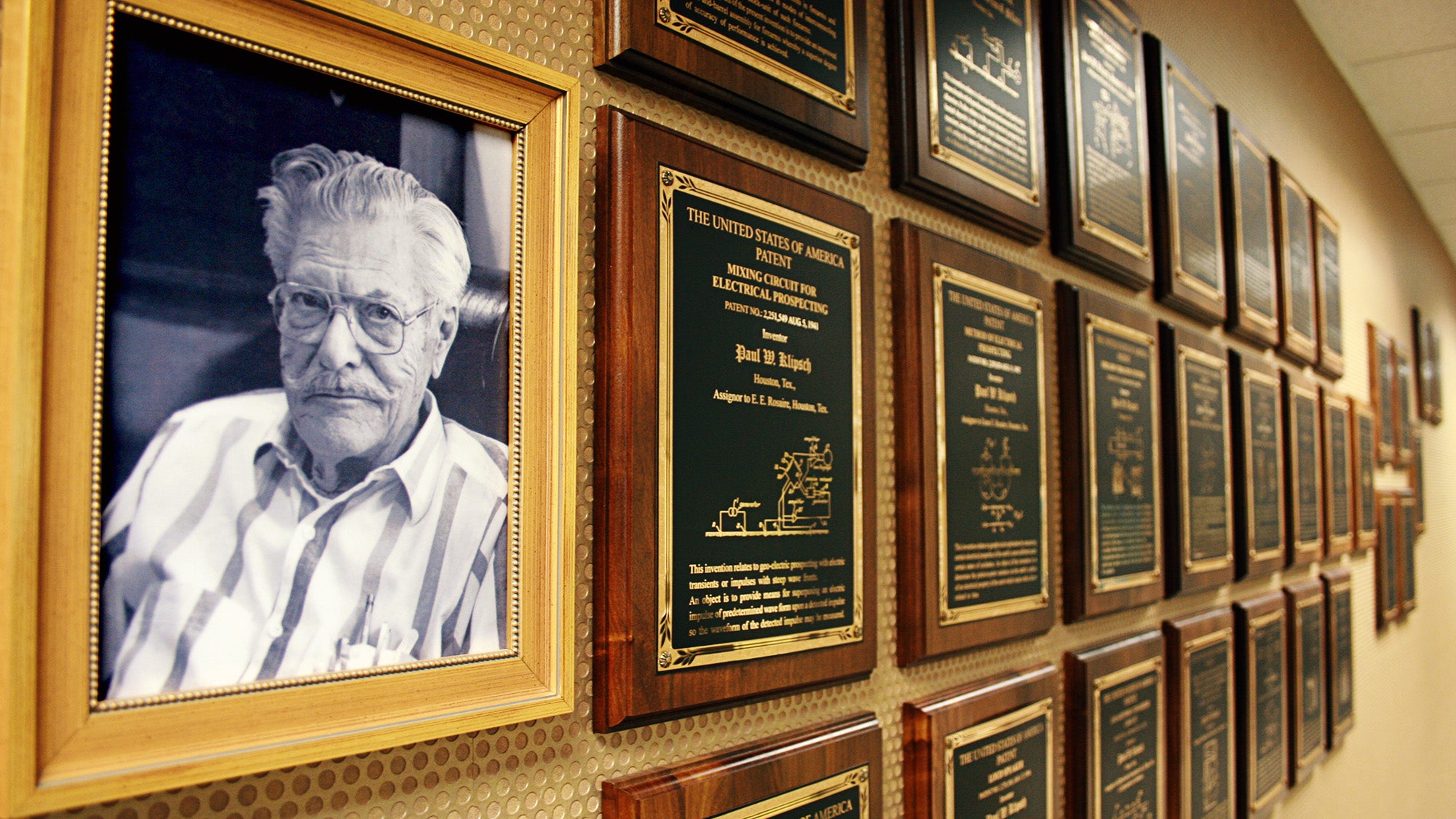
LEAVING A LEGACY
The acoustics career of Paul W. Klipsch spanned from 1946, when he founded one of the first U.S. loudspeaker companies, to 2000 when the Journal of the Audio Engineering Society published one of his papers. Over that time, he accounted for 23 patents.
He died on May 5, 2002 at the age of 98.

